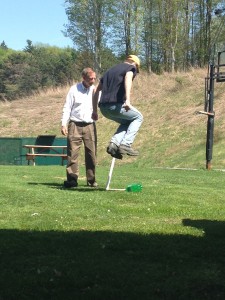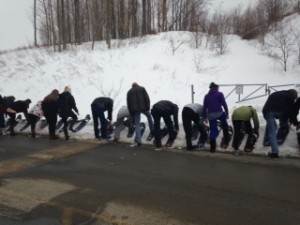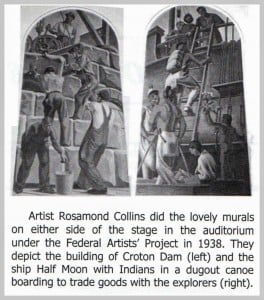Currently, our high school is moving to a modified block schedule with a six-day cycle of 2 days 40 minutes and 4 days of 80-minute classes split between odd and even days. This is a big shift for any school or teacher and I anticipate that many of my faculty will have anxious feelings about this transition. My goal is to provide them with as much support necessary to feel comfortable in the new schedule. I was very fortunate when I began teaching in a block schedule that I was given training in a number of popular models of the 90’s ( Johnson and Johnson’s Cooperative Learning, Glasser’s Reality Theory etc.) I want my teachers to have the same opportunities that I had to be well prepared to teach in a block period. Although some faculty will be trained in the popular LATIC model (Learner Active Technology Infused Classroom) before school begins, I thought it was important to outline some “big picture” thoughts on planning for 80 minutes to give all of my staff some guidance.
To begin, If you are in the routine of delivering or lecturing information for 40 minutes, this will not work in an 80-minute block! This quote from an anonymous student truly summarizes why lecturing in a block will not work with teenagers, “If I die, I hope it’s during a lecture; the difference between life and death will be so small, I will not notice a difference.” (M. Rettig, Professor at James Madison University.) Regardless of how entertaining you are, students will lose interest within 10 minutes. Plus, research tells us that students and adults retain less than 10% of what they have been told. How can you plan to gradually turn the learning over to the students? How can technology provide you with the tools to do this?
Teaching in a block period should not look like two 40 minute periods strung together. Each lesson should reflect a unique objective of what students should know, should understand and should be able to do by the end of the period. This will enable you to organize class time more effectively. One of the focal points when planning is thinking about how students will APPLY the new found information and how they will demonstrate what they know or are able to do. Identifying the application will help you to think more closely about the activities and the time needed for the lesson.
Generally, it’s a good rule of thumb to have students change tasks/activities approximately every twenty minutes. As we know, it’s not healthy for anyone to sit for a time span greater than 20 minutes without stretching. This means kids, too! http://www.npr.org/2012/05/09/152336802/stand-up-walk-around-even-just-for-20-minutes
Routines for classroom management are necessary. However, the same lesson plan every day leads to a rut for you and for your students. Think about how to add variety to your lesson planning. Consider developing authentic inquiry based activities, Socratic seminars scored discussions, simulations, writing activities that engage the students in real world problems.
Facing History- Socratic Seminars
https://www.facinghistory.org/resource-library/teaching-strategies/socratic-seminar
BrainPop- Teaching With Simulations
https://educators.brainpop.com/teaching-tip/teaching-strategies-interactive-simulations/
Letting students start homework where you can check for understanding is acceptable. However, the purpose of longer classes is to deepen student understanding of the material.Instead of homework completed in class think about…
- Putting more time into closure activities that formatively assess student understanding
Beyond the Exit Slip:
Powerful Closure Activities:
https://www.edutopia.org/blog/22-powerful-closure-activities-todd-finley
- Helping students plan out long term inquiry based assignments
Inquiry Based Lesson Ideas
https://www.edutopia.org/article/inquiry-based-learning-resources-downloads
Inquiry Based Fiction Texts
https://www.teachingchannel.org/videos/inquiry-based-teaching-with-literature
Cornell Science High School Inquiry
http://csip.cornell.edu/Curriculum_Resources/default.html
Use Inquiry to Teach Math
http://www.teachmag.com/archives/8366
- Giving students a voice in learning
What Students Can do
http://whatkidscando.org/index.html
The links included are not meant to be a comprehensive list of resources, but a starting point of quality sites & organizations that can assist you in thinking about your lessons. I am not an expert in teaching in a block schedule. But, I am happy to partner with any faculty member to plan out the year, work on some individual lessons or just banter ideas about. Many of you will soon be trained in IDE and be another excellent resource. As we move through the year, we will use our time to learn from each other. I encourage you to be creative, take risks and explore new ideas and lessons. I look forward to documenting our journey together.


